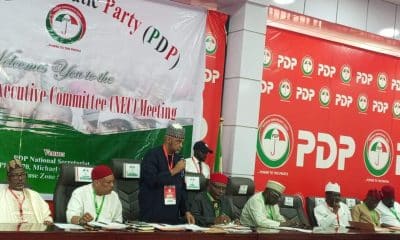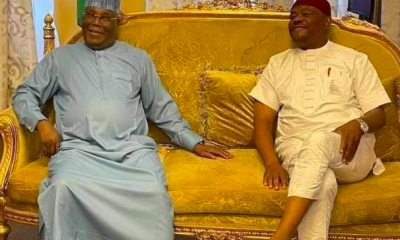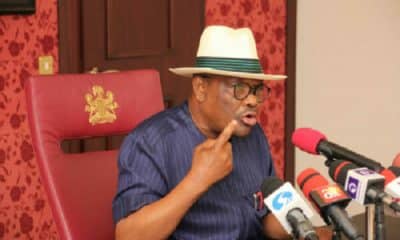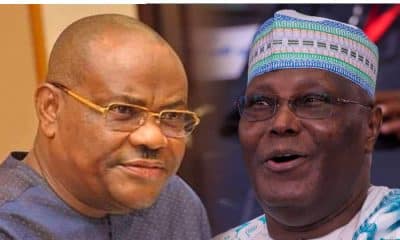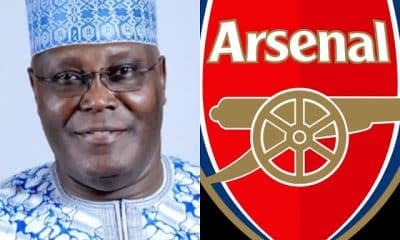Nigeria News
#2018 Worker’s Day: Atiku Urges Labour Leaders To Discuss Minimum wage, Industrialization, education, Among Others


Nigerian Former Vice President- Atiku Abubakar
In the light of 2018 Worker’s Day, Nigeria’s former vice president, Atiku Abubakar has called on labour leaders to raise issues on minimum wage, industrialization, education, healthcare delivery and pension with the Federal government.
In a statement in Abuja on Monday, Abubakar noted that it is quite embarrassing that withe the current economic crises, the minimum wage is still ₦18,000 per month (less than $50)
He said. although it is proper for the Federal Government to set the minimum wage, that shouldn’t be a standard for state governments, especially rich states
According to Abubakar, the minimum should be simply considered as the baseline for them to build on.
“I believe that our Federal Government will become smarter when it is smaller and more flexible in addressing the needs of our labour force,’’ he said.
The former vice-president added that the continuing rate of de-industrialization in Nigeria’s economy was of grave concern, saying the manufacturing sector which was supposed to create jobs had continued to face decline.
He said the epileptic power supply, high credit cost , multiple exchange rate regimes, and in extreme cases, inadequate foreign exchange supply and depreciating value of the naira were the cause for this.
“The ability to broker the required synergy with international partners and the private sector in key sectors of the economy should be the basis for the 2019 engagement with the organized labour and the Nigerian people,’’ he said.
These, according to him, include automobile, textiles, agro-allied, petrochemicals, fertilizers and pharmaceutical industries, building materials, milling, paper and paper products, solid minerals, iron and steel.
He added that funding for the educational sector had also remained abysmally low, saying “this problem cuts across all tiers of government.
“As we speak today, the Central Bank of Nigeria is in custody of billions of naira, funds representing Federal Government’s share of Universal Basic Education Fund, which state governments are expected to draw from by paying counterpart funding.
“Majority of the states have failed to benefit from this fund because they have not provided the required matching funds.
“I am a firm believer in our youths and the height at which they can take this country if accorded quality and affordable education.’’
He said if Nigerian government can divert attention to education of the youths and adult population, Nigeria would have better potentials.
“We must increase funding for our education and research institutions where the foundational rubrics of our development can be hatched and nurtured.’’
He also directed focus towards the needs of good healthcare systems in the country.
“We need a leadership that can gather enough investment in the upgrade of infrastructure and procurement of modern healthcare technology and equipment for our hospitals and primary and secondary healthcare facilities.”
He expressed concern over cases of workers leaving public service and having to wait for up to 15 months to18 months for their pension issues to be processed, and non-payment to pensioners, especially by state governments.
He said there was no doubt that labour movement in Nigeria had a huge role to play in ensuring that the objectives and reform of the sector were met.

